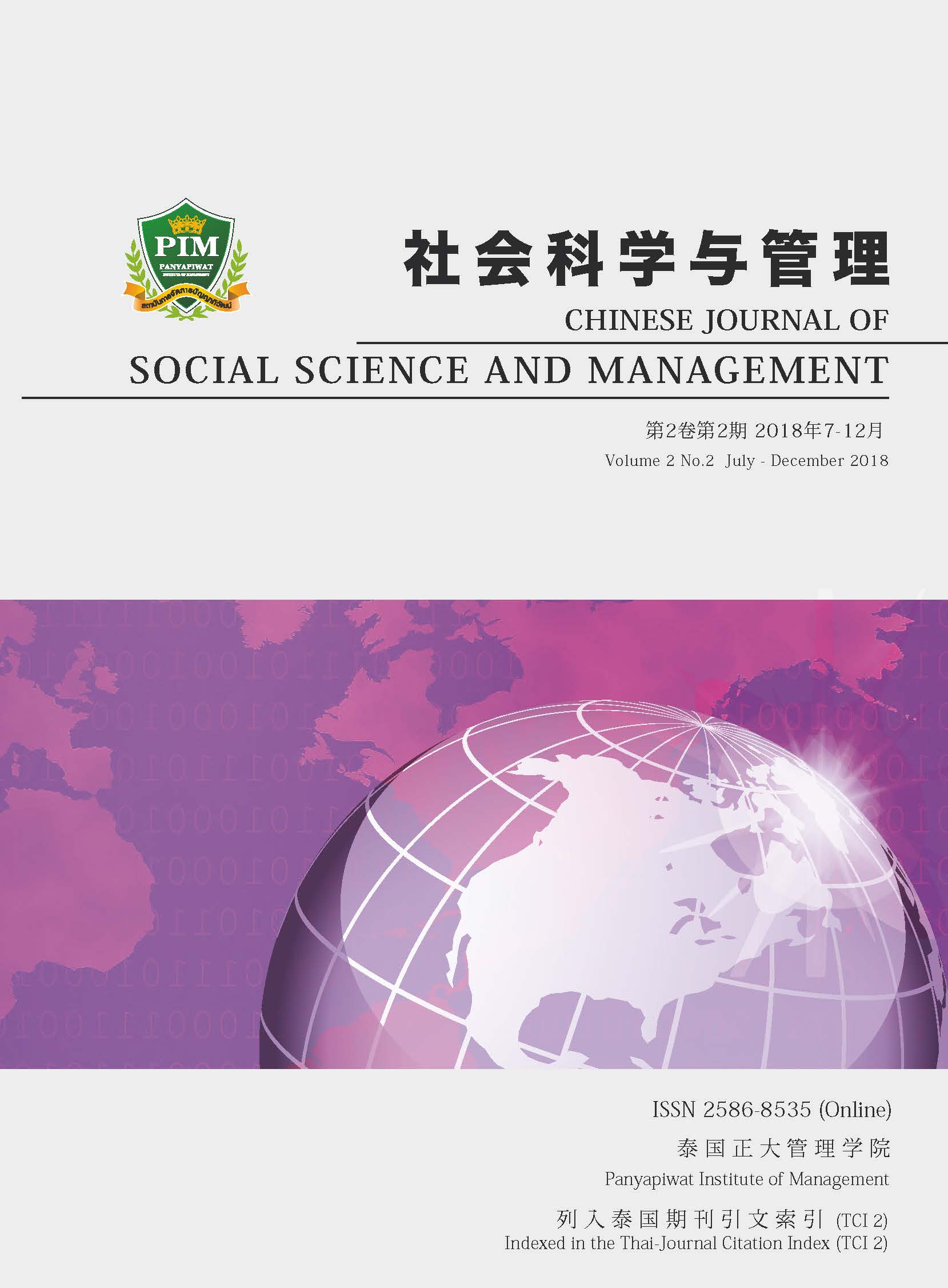THE INFLUENCE OF SKILLED TALENTS IN HIGHER VOCATIONAL COLLEGES UNDER THE COOPERATION BETWEEN UNIVERSITIES AND ENTERPRISES ON EMPLOYMENT ABILITY: BASED ON THE INTERMEDIARY ROLE OF PSYCHOLOGICAL CAPITAL
Main Article Content
Abstract
College-enterprise cooperative education is highly valued as an important way to cultivate
skilled talents in higher vocational colleges. How to enhance the employment capacity of skilled personnel?
What are the influencing facters? These problems are still lack of quantitative research. Three hundred
and six vocational students participating in the college enterprise cooperative education, from five national
demonstration or backbone higher vocational colleges in Guangxi province, was selected as the research
subject in this study. The study focused on the influence of the individual psychological capital in
college-enterprise cooperation and employment ability in intermediary effect, and mainly adopted
mechanism that enhances multiple regression analysis and structural equation to explore college-enterprise
cooperation higher vocational students employability. The research results provide new path choices and
ideas for colleges and enterprises to enhance the psychological capital and employability of vocational
students.
Article Details
Chinese Journal of Social Science and Management Editorial Division
The Office of Research and Development, Panyapiwat Institute of Management
85/1 Moo 2, Chaengwattana Rd., Bang Talat, Pakkred, Nonthaburi 11120, Thailand
Tel. 02 855 01048 E-mail: cjssm@pim.ac.th
References
Brown, A., Smith, P. & Kuit, J. (2013). The use of a social enterprise construct for widening participation, learning and training for employment: a qualitative study. Widening Participation & Lifelong Learning, 14(3), 202-215.
Cao, X. T. & Li, H. (2011). Quantitative research on psychological capital of contemporary university students. Border Economy & Culture, (1), 42-44. [in Chinese]
Dalitz, R. (2012). Vocational education and training: the of innovation policy. Prometheus, 30(4), 411-426.
Han, J. (2016). The Influence of Psychological Capital on Employment Ability of Students. Journal of Educational Development, (11), 44-47. [in Chinese]
Huang, J. R. (2007). Interpretation of the Cooperation Between Universities and Enterprises. Training in China, (1), 22-24. [in Chinese]
Jiang, L. H. (2015). Study on the Strategy of the Exploitation of Psychological Capital of Vocational College Student. Journal of Changzhou Vocational College of Information Technology, (4), 93-96. [in Chinese]
Li, D. & Chen, S. S. (2011). Health Education on the Employment Psychology of Female College Students under the Visual Field of Psychological Capital. Journal of Shaoguan University, (5), 186-189. [in Chinese]
Li, H. & Cao, X. T. (2011). Research on the Relationship between Psychological Capital and Employability of College Students. China Higher Education Research, (3), 54-56. [in Chinese]
Li, P. & Wu, G. M. (2012). Psychological capital cultivation: The question of college students employability improvement. Fujian Forum, (12), 215-216. [in Chinese]
Li, R. (2015). A Preliminary Discussion on the Development of Higher Vocational Students’ Psychological Capital. Journal of Tianjin Vocational Institutes, (5), 31-33. [in Chinese]
Lou, L. S. & Liang, Y. (2012). Study on Employment Competitiveness Enhancement Strategy of Higher Vocational Education Graduates under the Mode of the Cooperation between Universities and Enterprises. Shenzhou, (10), 36-41. [in Chinese]
Luthans, F. & Youssef, C. M. (2004). Human, social, and now positive psychological capital management: Investing in people for competitive advantage. Organizational Dynamics, 33(2), 143-160.
Sun, J. N. (2014). Study on the Psychological Capital Intervention on the Mechanism of Action of Entrepreneurial Ability of College Students. Communication of Vocational Education, (7), 70-77. [in Chinese]
Tao, R. (2013). A Preliminary Discussion on the Role of the Cooperation between Universities and Enterprises in the Promotion of Employment Ability of Students. Consume Guide, (9), 78-79. [in Chinese]
Wang, X. L. (2016). Cultivation of Higher Vocational College Students’ Employment Ability Based on College-Enterprise Cooperation. Journal of Changzhou Vocational College of Information Technology, (3), 79-81. [in Chinese]
Xu, X. Y. (2011). Research on the influence of school-enterprise cooperative education on the creativity of skilled talents. Doctor’s Thesis, Wuhan University, China. [in Chinese]
Zhang, K. & Zhang, S. (2010). Positive Psychological Capital: Measurement and its Relationship with Mental Health. Psychological and Behavioral Research, (1), 58-64. [in Chinese]
Zhen, M. R. & Peng, J. S. (2012). Effect of Organizational Innovation Climate on Employees’ Innovative Behavior: Based on Individual Goal Orientation and Psychological Capital. Science & Technology and Economy, (1), 86-90. [in Chinese]
Zheng, X. M. (2002). “Employability” Theory. Journal of China Youth Political Institute, (3), 91-92. [in Chinese]
Zhu, J. & Shi, W. Y. (2014). Research on Measures to Improve the Employability of Vocational Students. Modern Business Education, (18), 66. [in Chinese]


